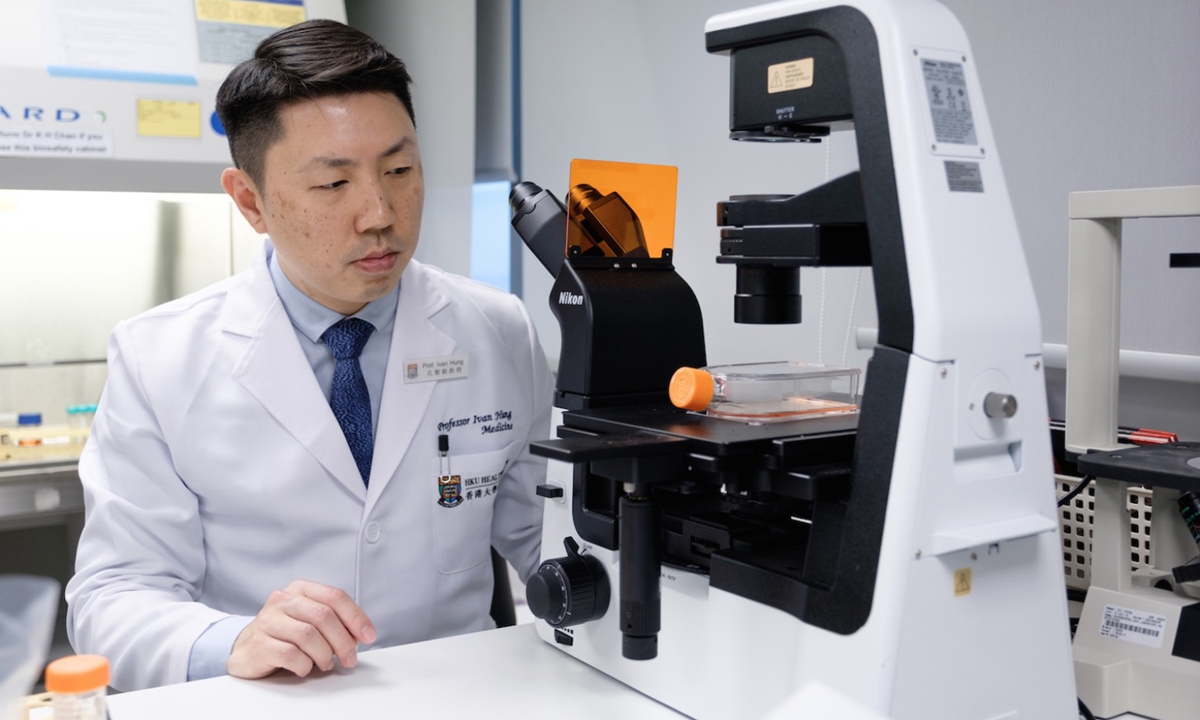Chances of having long COVID very low due to early treatment, weakened Omicron variant: Hong Kong professor

Photo: Courtesy of Professor Ivan Hung
The percentage of those with long COVID is extremely low, said a Hong Kong professor who monitored 3,000 people from the city who recovered from COVID-19 and found roughly 1 percent suffered from longer-term effects. He attributed the reason to early treatment and weakened pathogenicity of Omicron.
Professor Ivan Hung Fan-ngai from the University of Hong Kong has been following more than 3,000 patients who recovered from COVID-19 in Hong Kong since the beginning of last year. He told the Global Times on Friday that approximately 30 to 40 patients have symptoms of long COVID, accounting merely 1 percent of the total.
The most common symptoms of COVID-19, according to Hung, are lost sense of smell and taste, and easy fatigue.
According to WHO's definition, long COVID occurs in individuals with a history of probable or confirmed coronavirus infection, usually three months from the onset of COVID-19. Symptoms last for at least 2 months and cannot be explained by an alternative diagnosis.
Hung said that those who suffer from long COVID are usually those with severe symptoms, such as patients who have been in intensive care unit, and who are with severe lung diseases.
The WHO said in September that approximately 10-20 percent of COVID-19 patients experience lingering symptoms following an acute SARS-CoV-2 infection.
Yet Hung explained that the rate in Hong Kong is relatively low because patients in Hong Kong received treatment very early, as majority of those patients were treated within five days; and also thanks to decreased pathogenicity of Omicron variant.
The professor said that after Hong Kong was hit by the fifth wave of COVID-19 earlier this year, vaccination rates surged and most people who caught Omicron have had mild or even no symptoms, which rendered the percentage of long COVID cases even lower.
A paper published in the Lancet in June found that the chances of patients with the Omicron variant suffering from long COVID are 20 to 50 percent lower than those who had the Delta variant.
Hung said that most patients who suffer from long COVID can recover within three months.
Long COVID and post-COVID conditions became a focal point for Chinese researchers ever since reports of longer-term effect and severe after effects of COVID-19 began to emerge.
Chong Tianyu, a professor from infectious disease department of the third affiliated hospital in Sun Yat-sen University in Guangzhou, told media on Wednesday that there's no evidence to show that COVID-19 will have after effects on patients who recovered from it.
Some patients, whose organs' function haven't been fully recovered, can be categorized as after condition of COVID-19, said Chong. Those who complained about symptoms, such as lost sense of smell and taste, memory deterioration, chest pain, belong to long COVID, not after condition, said Chong.
Wu Zunyou, chief epidemiologist at the Chinese Center for Disease Control and Prevention said in October this year that after effects from COVID-19 are common among those who had severe symptoms, but they can also occur in those who had mild symptoms. The risks of COVID-19 after effects are far lower for those who have been vaccinated.

